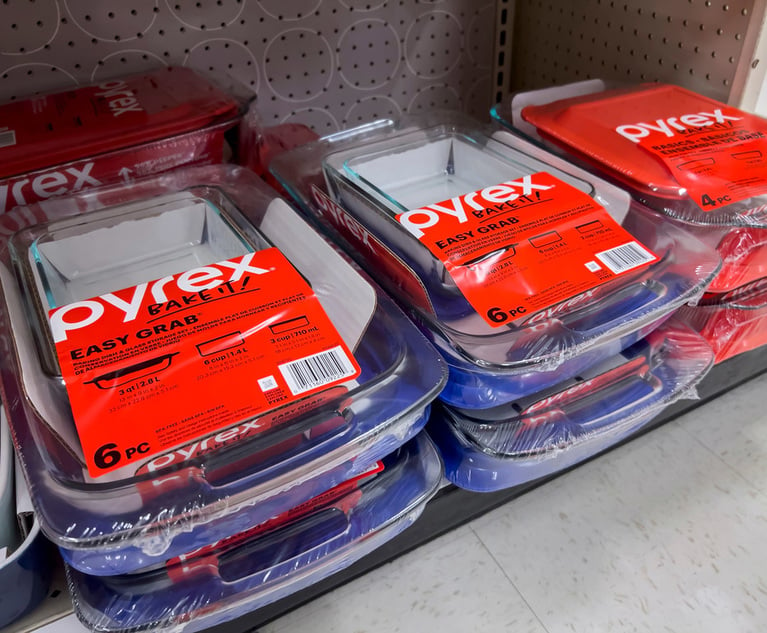
Phila. Police Joins Growing List of Employers Auditing Employees' Social Media Posts
Employers may be keeping a closer eye on employees' social media posts, but crude and offensive posts don't always provide enough legal standing to discipline or terminate an employee, lawyers say.
July 24, 2019 at 11:30 AM
3 minute read
The original version of this story was published on Legal Tech News
As employees' social media posts grab global attention for all the wrong reasons, more employers are auditing workers' social media profiles to spot any activity that violates company policy.
On June 19, after firing 13 police officers and placing 72 others on desk duty over their offensive social media posts, the Philadelphia Police Department announced it will implement a “mechanism” to audit officers' social media posts. Such social media mining is a proactive approach that more employers are implementing, said Mayer Brown partner Richard Nowak.
“I think [this] will be more common going forward with employers because of the significant publicity,” he said.
But as more employers examine their workers' social media trail, lawyers recommend they not target specific employees for monitoring to prevent certain discrimination and labor claims.
To be sure, First Amendment rights in the workplace only extend to government employees. For those employees, the U.S. Supreme Court has established a test to evaluate if the employee's speech addresses a matter of public concern and, if so, whether the employee's right to free speech outweighs their employer's interest in an efficient, disruption-free workplace.
For the vast majority who are employed by a private company, their unfair labor complaints are heard by the National Labor Relations Board, which doesn't grant First Amendment rights but provides an employee with a host of protected actions and language.
Still, private employers can run into a host of legal issues when mining their staff's social media. “It's one of those things that is easy for an employer to say, 'I'm a private employer [and] they have no First Amendment rights,' which is true but it's not so easy because so many statutes could be implicated and typically employees are getting upset about something related to the workplace,” said Jackson Lewis principal and co-leader of the firm's labor and preventive practices group Jonathan Spitz.
Spitz cited the National Labor Relations Act, Occupational Safety and Health Act and Title VII of the Civil Rights Act as some of the protections that shield employees from discrimination and harassment and provides other employment rights.
The five-person National Labor Relations Board under President Donald Trump's administration, however, has typically taken a pro-management stance on matters and is “much more lax than what the board was under [President Barack] Obama,” Nowak noted.
But even under a new administration, lawyers caution against targeting specific employees for a social media audit. Outside of a reactive search after an employee alleges a fellow worker sent harassing messages, Spitz said it's best to monitor everyone.
“If you are going to monitor social media, you should have an evenhanded system,” Spitz said.
This content has been archived. It is available through our partners, LexisNexis® and Bloomberg Law.
To view this content, please continue to their sites.
Not a Lexis Subscriber?
Subscribe Now
Not a Bloomberg Law Subscriber?
Subscribe Now
NOT FOR REPRINT
© 2024 ALM Global, LLC, All Rights Reserved. Request academic re-use from www.copyright.com. All other uses, submit a request to [email protected]. For more information visit Asset & Logo Licensing.
You Might Like
View All
Immunity for Mental Health Care and Coverage for CBD: What's on the Pa. High Court's November Calendar
5 minute read

Trending Stories
- 1Judicial Ethics Opinion 24-61
- 2Decision of the Day: School District's Probe Was a 'Sham'; Title IX Administrator Showed Sex-Based Bias
- 3US Magistrate Judge Embry Kidd Confirmed to 11th Circuit
- 4Shaq Signs $11 Million Settlement to Resolve Astrals Investor Claims
- 5McCormick Consolidates Two Tesla Chancery Cases
Who Got The Work
Michael G. Bongiorno, Andrew Scott Dulberg and Elizabeth E. Driscoll from Wilmer Cutler Pickering Hale and Dorr have stepped in to represent Symbotic Inc., an A.I.-enabled technology platform that focuses on increasing supply chain efficiency, and other defendants in a pending shareholder derivative lawsuit. The case, filed Oct. 2 in Massachusetts District Court by the Brown Law Firm on behalf of Stephen Austen, accuses certain officers and directors of misleading investors in regard to Symbotic's potential for margin growth by failing to disclose that the company was not equipped to timely deploy its systems or manage expenses through project delays. The case, assigned to U.S. District Judge Nathaniel M. Gorton, is 1:24-cv-12522, Austen v. Cohen et al.
Who Got The Work
Edmund Polubinski and Marie Killmond of Davis Polk & Wardwell have entered appearances for data platform software development company MongoDB and other defendants in a pending shareholder derivative lawsuit. The action, filed Oct. 7 in New York Southern District Court by the Brown Law Firm, accuses the company's directors and/or officers of falsely expressing confidence in the company’s restructuring of its sales incentive plan and downplaying the severity of decreases in its upfront commitments. The case is 1:24-cv-07594, Roy v. Ittycheria et al.
Who Got The Work
Amy O. Bruchs and Kurt F. Ellison of Michael Best & Friedrich have entered appearances for Epic Systems Corp. in a pending employment discrimination lawsuit. The suit was filed Sept. 7 in Wisconsin Western District Court by Levine Eisberner LLC and Siri & Glimstad on behalf of a project manager who claims that he was wrongfully terminated after applying for a religious exemption to the defendant's COVID-19 vaccine mandate. The case, assigned to U.S. Magistrate Judge Anita Marie Boor, is 3:24-cv-00630, Secker, Nathan v. Epic Systems Corporation.
Who Got The Work
David X. Sullivan, Thomas J. Finn and Gregory A. Hall from McCarter & English have entered appearances for Sunrun Installation Services in a pending civil rights lawsuit. The complaint was filed Sept. 4 in Connecticut District Court by attorney Robert M. Berke on behalf of former employee George Edward Steins, who was arrested and charged with employing an unregistered home improvement salesperson. The complaint alleges that had Sunrun informed the Connecticut Department of Consumer Protection that the plaintiff's employment had ended in 2017 and that he no longer held Sunrun's home improvement contractor license, he would not have been hit with charges, which were dismissed in May 2024. The case, assigned to U.S. District Judge Jeffrey A. Meyer, is 3:24-cv-01423, Steins v. Sunrun, Inc. et al.
Who Got The Work
Greenberg Traurig shareholder Joshua L. Raskin has entered an appearance for boohoo.com UK Ltd. in a pending patent infringement lawsuit. The suit, filed Sept. 3 in Texas Eastern District Court by Rozier Hardt McDonough on behalf of Alto Dynamics, asserts five patents related to an online shopping platform. The case, assigned to U.S. District Judge Rodney Gilstrap, is 2:24-cv-00719, Alto Dynamics, LLC v. boohoo.com UK Limited.
Featured Firms
Law Offices of Gary Martin Hays & Associates, P.C.
(470) 294-1674
Law Offices of Mark E. Salomone
(857) 444-6468
Smith & Hassler
(713) 739-1250






